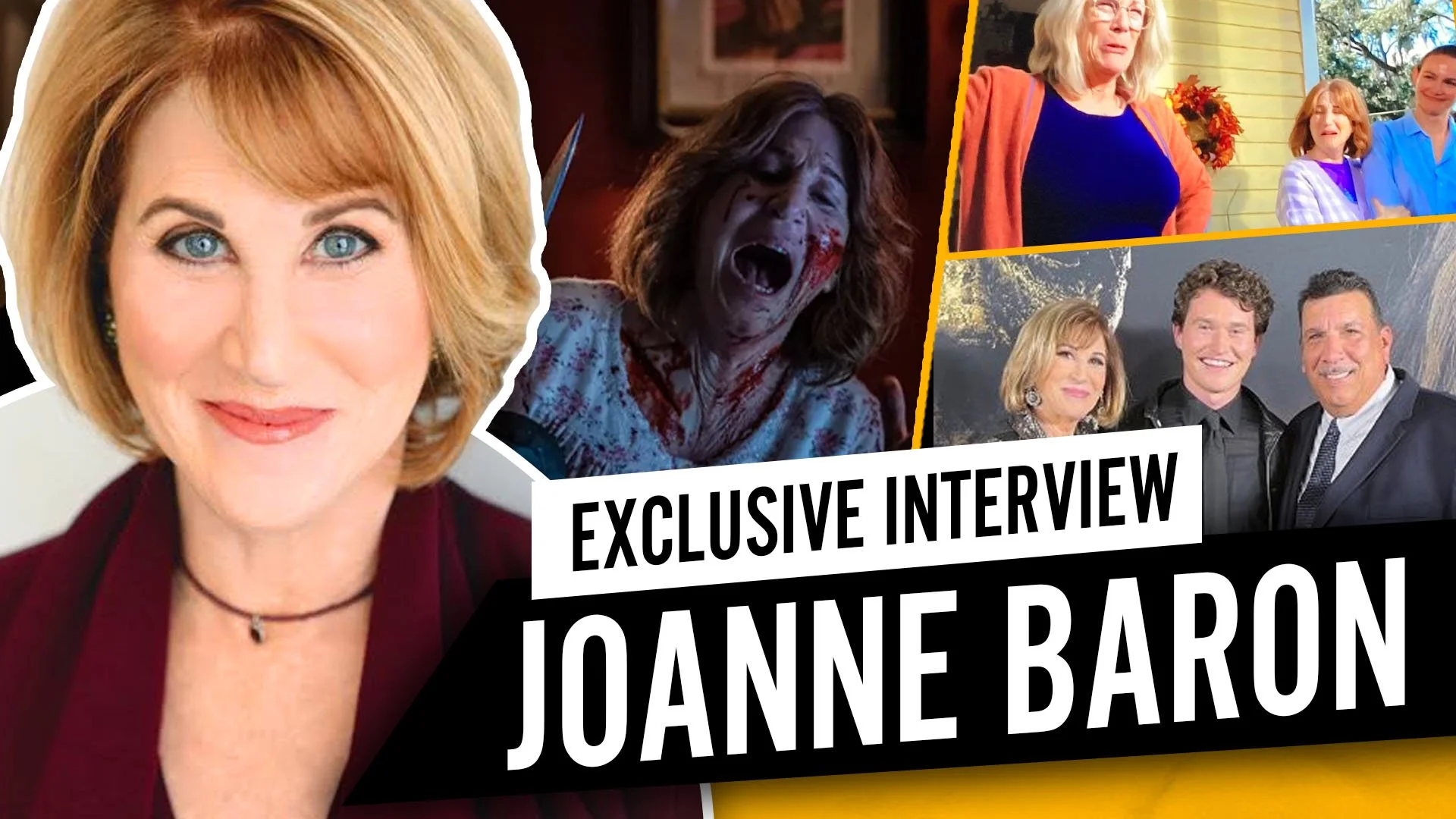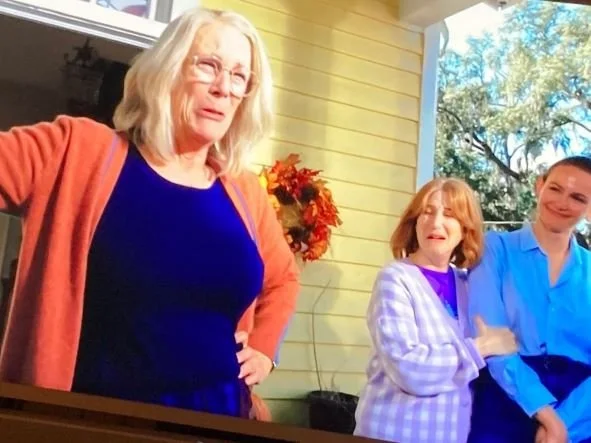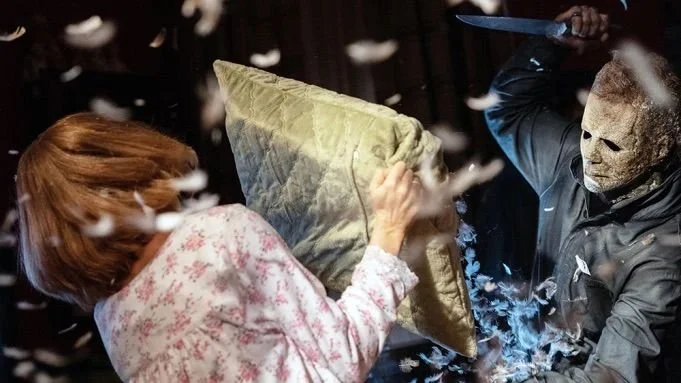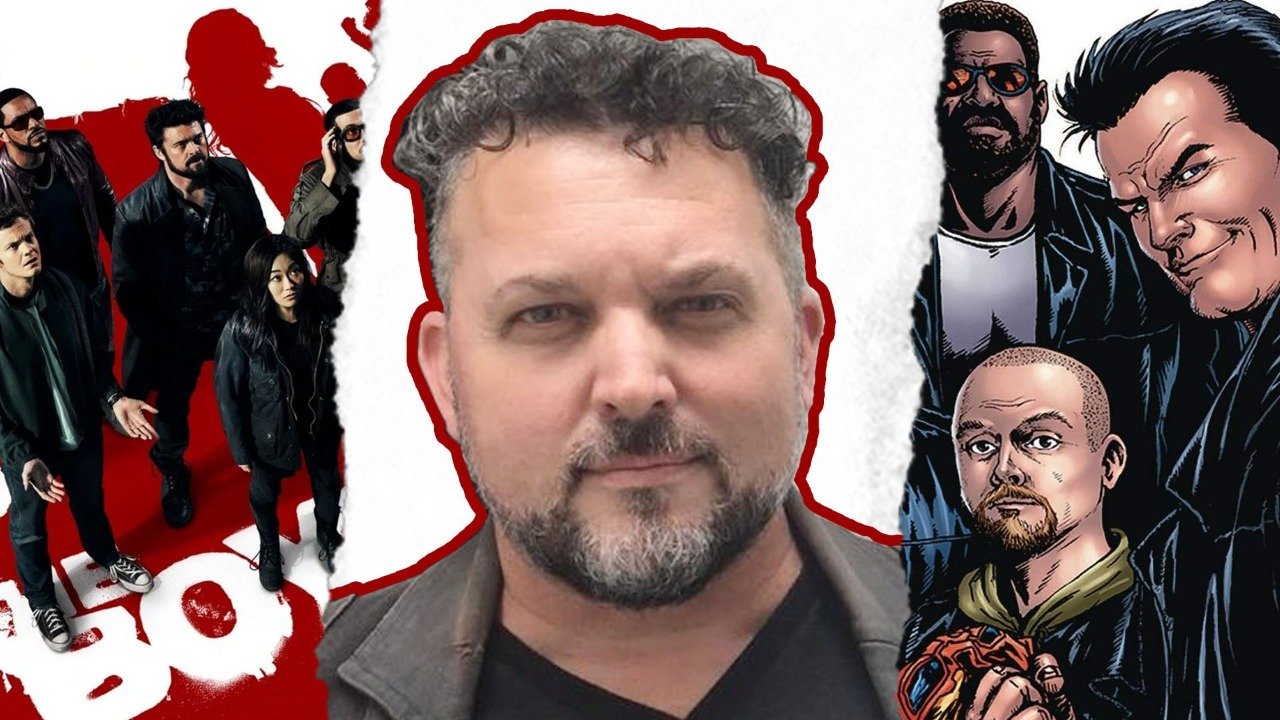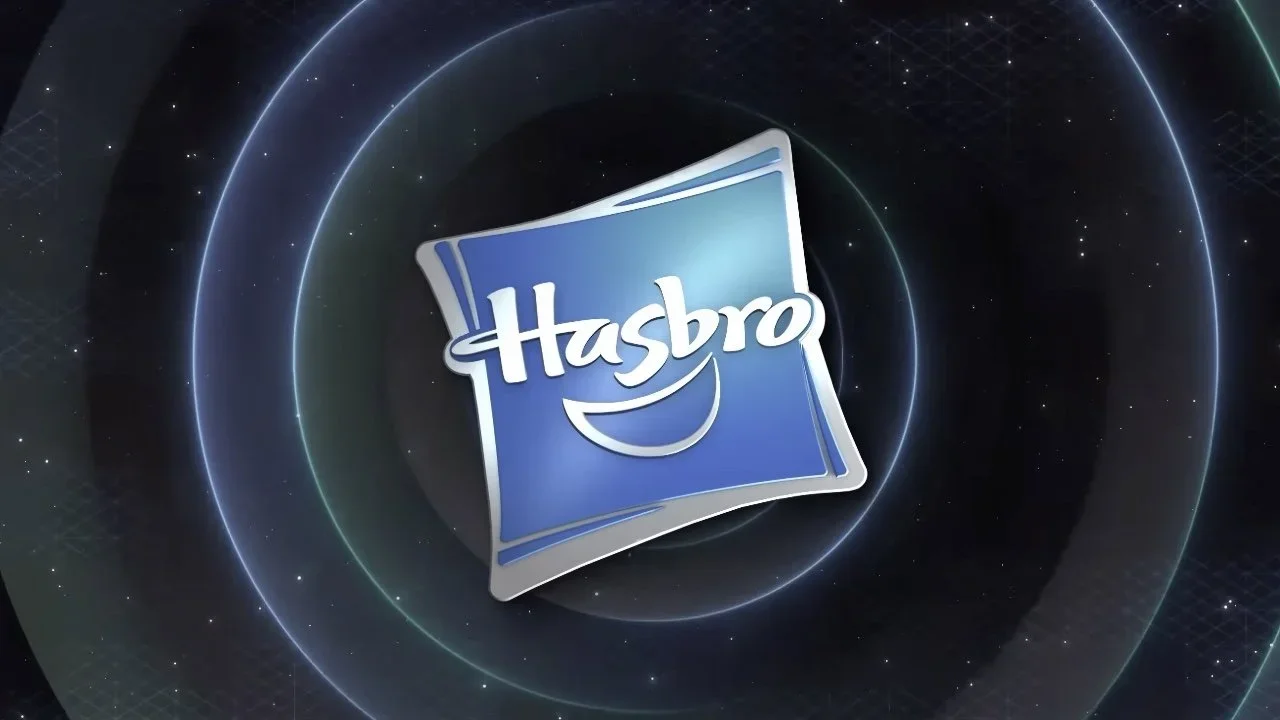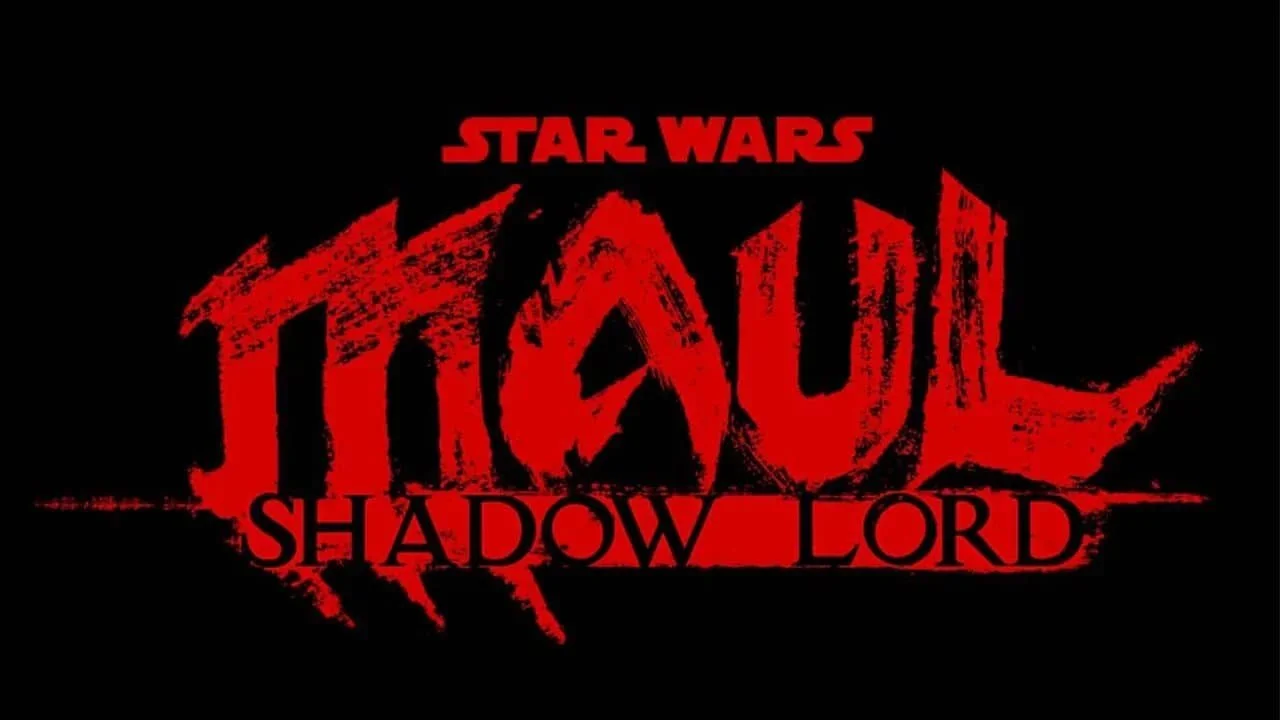Exclusive Interview With Joanne Baron From 'Halloween Ends'
Image Source: CultureSlate
I recently had the opportunity to sit down with Joanne Baron for an interview after her appearance as Joan (Corey's mother) in Halloween Ends. We talked about her production company and acting school, as well as her upcoming biopic. Most interestingly, she gave us some interesting details surrounding her character in Halloween Ends.
This interview has been edited for clarity and length.
The first thing I want to talk about is I know that you and your husband run a production studio named Baron Brown Studios. Can you tell us about any upcoming projects or anything that you guys have in the works?
My husband has written a play called Little Charlie, an adaptation of an Ibsen play, Little Leo, and he will put that in production. I wrote my life story and he wrote part of it, too, called Pawtucket, which is all about being raised in Pawtucket, Rhode Island. It has some terrific actors attached and we are hoping to be shooting that this spring.
And I'm excited because I've made a few movies from the school, a movie called Allie & Me, which was me playing a developmentally challenged beautician who goes on a crime spree. And Lainie Kazan and Dyan Cannon are in it. And then I made a movie called Perfume with Jeff Goldblum and Michelle Williams playing my daughter. My husband directed a movie called On the Inside with Olivia Wilde and Nick Stahl. So we've made several movies.
We made a series called Joanne Brown Is Here, which anybody can see on Facebook. It is a really funny series about a middle-aged woman who goes kerplunk and we continue to do episodes of that. It's very funny. Her husband cheated on her and Jeff Goldblum is in it, Rick Trotter, the Marvelous, rapper-actor writer-producer of The Roots, uh his name as a rapper is Black Thought. He's on Jimmy Fallon, so he's in it. Yeah, so there are a lot of projects. Some are ongoing the new ones are the play and my movie Pawtucket.
RELATED:
You've mentioned in previous interviews that your husband and you also do acting classes on the Meisner method could you tell me a little bit about what that's like?
I have a training that I did with a man named William Esper, and I studied privately in auditing Sandy Meisner's final classes in New York at the Neighborhood Playhouse. And as an actress, I came out to LA from New York and did Lovers and Other Strangers the series. And I did Joy of Sex, where I met my husband. Not a very sexy movie but a silly movie by the great director Martha Coolidge with whom I've done about 15 projects.
And I became an acolyte and a training teacher of Bill Esper. I was the very first person that Bill Esper trained to be a teacher. Except for one fellow who did tarot cards, but Bill didn't like to count him. And I then came out here as an actress, met my husband, [and] opened up a private class. After a while, he was like ‘Lieberman, the president of CBS casting is in your class, and Martha Coolidge, you know, the iconic director, so I want to be in your class.’ So much to my bad judgment, I put my husband in my acting class. He eventually said he would like to teach, so he trained to be a teacher.
What's cool about the school is it produces TV and film, so when you see projects, you see projects with students. And students can be Justin Sean, the great filmmaker who's doing Pachinko now, who writes and directs and produces and stars, or it can be Hannah Mae Lee from Pitch Perfect. It's all our collaborations with artists, producers, directors, and casting. So it's a little bit like a little production company, but it's also an acting training program.
That is interesting. And especially, I imagine, that it gives you a lot of interesting and unique connections in the industry with people I wouldn't even think of that you know because they've come to you for that teaching.
It's a community, and so there's something great and there's also a bunch of students that'll get in a class and put on a movie or put on a play or write a piece, and you see that happening all the time with their classmates, and sometimes somebody's classmate ends up being Tom Shadyac, you know, an iconic director. What better way to learn acting than on camera?
So Halloween Ends, first of all, I'm a huge fan of your character in the movie. She is, in my opinion, the scariest person in that film, and you're acting against one of the most iconic horror villains. What did you bring from your own experience or other roles that you've had for Joan in the movie?
Well, you know, when you are an artist you draw everything from your life. Some from your imagination or expanded life, exaggerated life. So when you have a part, no matter what that part is, you are continually drawing from the garden of your pain, history, and sadness.
The truth is you couldn't play any part without really drawing from yourself in some way. Although, yes, it's true [that] imagination can transport you to things you've never known, but you'd still have to have a basis in orientation and understanding for empathy, connection, and identification.
So Joan is a broken woman representing the town of Haddonfield who has not only experienced her son's victimization through a tragedy that occurs that he's blamed for, but she also is in the town of Haddonfield. Which has been shadowed and darkened and made tragically paranoid and fearful in the reaction to the Michael Myers legacy.
Image Source: Joanne Brown
I think it's very interesting that you bring all that out because that really shows Joan is almost, in a way, an embodiment of just how broken Haddonfield is and how paranoid they are because of Michael. You're a hundred percent right, and it shows in your interactions with Laurie in the film.
It's a very interesting counterpoint. You know, sometimes an actor doesn't know what they've done and the impact. And when I read reviews that said toxic motherhood, they use both of us as bookends. The grandmother is overly controlling, paranoid, and fearful, and the mother is the same. These women are shaping both their granddaughter and their son with their embodiment of an internalization of Michael Myers.
I hear that the first scene that you shot was Jamie Lee Curtis's last scene as Laurie Strode. If that's true, would you mind telling us what that was like?
The backstory to that is interesting. I came on the first day of the set, and every actor on the first day of a movie is hoping they won't get fired and hoping the director will like them. When I first got the script, it was called another name, Cave Dweller, and I don't even know if I knew Jamie Lee was in the scene with me until like a week before. I know tomorrow's my first day, better get some sleep. Some actors can't sleep before they work. Luckily, I was able to, and I get to the set, and I am in the scene in my house on the first day.
We come out on the porch of my house, and the door opens, and hundreds of people scream, and they have cameras and microphones. I turned to David Gordon Green, who's a real prankster and a real tease, and I said,
‘Oh my gosh! Is it Jamie Lee Curtis's birthday?’
‘Yes, Joanne, it's Jamie Lee Curtis's birthday.’
And I go,
‘Jamie, happy birthday!’
Then, Andi Matichak, the star, the lead gal in the romance story with my son, pulls me aside and holds my hand. And suddenly Jamie Lee Curtis is crying.
It was only then I knew that was my first scene to shoot and her last scene. I thought, aren't I lucky that David Gordon Green, the brilliant auteur, the irreverent iconoclastic visionary... aren't I lucky that the same guy chose to do a completely different story than anyone would expect. And Jason Blum, aren't I lucky that he didn't tell me that? Because if he had said to me, this is her last scene, I think it would have freaked me out.
I also know that you were at the LA premiere with Jamie Lee Curtis, and they showed a tribute to her as Laurie over her career. What was it like seeing her reaction to that?
You know Jamie Lee has something that I hope I have, which is gratitude. Every actor, no matter who they are, and I have worked with people of great stature. I think most actors feel like they go from job to job, opportunity to opportunity, and even if they're a star, they don't necessarily think they get the opportunities that they'd like to get.
So in a way, even if they're not out in the trenches auditioning, they might be receiving scripts. And they might say well, these are all the same kind of script, and you know I want to try something different. I don't want to do the same character.
That gratitude, that humility, that profound recognition she has of what this franchise has done and given her. They range from her youth to her age now, transporting her through an iconic career. Her emotional response is tearful, grateful, and humble. She is an inspiration that all actors should model on and not become grumpy, resentful, or unappreciative of what they've been given and the opportunities they've had.
Image Source: Joanne Brown
There are quite a few scenes between you and Rowan that a lot of people describe as uncomfortable. What was that like for you, and what was the most difficult one to film?
You know, one of the things about Rowan is he goes there with you. So when I slap him and then I kiss him on the lips after, he made it very comfortable for me to kiss my son. He was always so believable and authentic. When I was tender with him, and not all these things are in the movie, I have a very tender scene with my son where after I tell him I'm not going to give him something. I touched the picture of my first dead husband, who had a motorcycle accident, which plays into the motorcycle given to him by a stepdad in the movie.
There are many scenes, even my fight scene, which is the wildest scene, where I am punching, screaming, kicking, and violent. David Gordon Green was on set with the A.D., throwing blood at me with a paintbrush. And then he says to sing, and I start singing as I'm killing or trying to kill the guy who's trying to kill me.
So actually, that was going to be one of the final questions. Is that Michael, or is it Corey?
I'm gonna say that in the last line of my death, which is not in the movie. David mentioned at the after-party that he was going to include some things he hadn't before in the director's cut. So there's going to be a director's cut of the movie that includes some of these scenes that we've talked about throughout this interview.
My husband, Moose, that's his name in life, texted me that there's going to be something called Corey Cunningham's cut, but I don't know what's going on, because I've been kept in the dark ever since I got the part. Because they changed their mind so much and they want things to be surprising. But the last line of my death is so wildly poignant, touching, moving, and shows Joan in such a different light so powerfully, and I think it connects to the possibility that it might be my son who's killing me.
If you’ve enjoyed this interview, check out the full video on YouTube.
READ NEXT:

